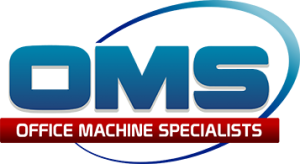
Introduction: Understanding Copier Leasing
Copier leasing is a common practice among businesses, especially those that require heavy use of copiers or printers. It involves renting a copier machine from a leasing company for a fixed period, usually between one and five years, and paying a monthly fee for the use of the machine. Many businesses choose to lease copiers instead of purchasing them outright because it allows them to conserve cash flow and keep up with technological advancements.
This beginner’s guide aims to provide an overview of copier leasing, its benefits, different types of leases, and factors to consider before signing a lease agreement. We will also discuss how to choose a leasing company, negotiate lease terms, and how to maintain the copier during the lease period. By the end of this guide, you will have a better understanding of whether copier leasing is a suitable option for your business.
What is Copier Leasing?
Copier leasing is a process where a business or individual rents a copier or printer from a leasing company for a set period of time, typically one to five years. The lessee pays a monthly fee for the use of the copier, which includes maintenance, repairs, and technical support. The leasing company owns the copier throughout the lease period, and at the end of the lease, the lessee has the option to return the copier, upgrade to a newer model, or purchase the copier at a predetermined price. Copier leasing allows businesses to have access to modern and advanced copier technology without having to invest a significant amount of money upfront, making it an attractive option for small and medium-sized businesses.
Types Of Copier Leases
Copier leases come in several different types, and the terms of the lease can vary widely depending on the needs of the lessee. Here are some of the most common types of copier leases:
1. Operating Lease: An operating lease is the most common type of copier lease. In an operating lease, the lessee rents the copier for a set period, usually one to five years. The leasing company retains ownership of the copier and is responsible for maintenance, repairs, and technical support. At the end of the lease, the lessee can return the copier, upgrade to a newer model, or extend the lease.
2. Capital Lease: A capital lease is similar to an operating lease, but it is treated as a purchase for accounting and tax purposes. In a capital lease, the lessee has the option to purchase the copier at the end of the lease for a predetermined price. The lessee is also responsible for maintenance and repairs during the lease period.
3. Municipal Lease: A municipal lease is designed for government entities and non-profit organizations. Municipal leases have a lower interest rate than commercial leases and allow for flexible payment terms. Municipal leases typically have a longer lease period than commercial leases.
4. Short-Term Lease: A short-term lease is typically less than a year and is ideal for businesses that need a copier for a specific project or event. Short-term leases have higher monthly payments than long-term leases but do not require a long-term commitment.
5. Fair Market Value Lease: A fair market value lease allows the lessee to return the copier at the end of the lease and pay the fair market value of the copier. This type of lease is similar to an operating lease but may have a lower monthly payment due to the lessee’s responsibility for the copier’s residual value.
6. $1 Buyout Lease: In a $1 buyout lease, the lessee has the option to purchase the copier for $1 at the end of the lease. This type of lease is similar to a capital lease, but the lessee is responsible for maintenance and repairs during the lease period.
Choosing the right type of copier lease depends on the lessee’s business needs, budget, and goals.
Common Misconceptions About Copier Leasing
There are several common misconceptions about copier leasing that can prevent businesses from considering it as an option. Here are some of the most prevalent misconceptions:
1. Leasing Is More Expensive Than Buying: While leasing can have higher monthly payments than purchasing a copier outright, it is often a more affordable option for businesses that do not have the capital to invest in a copier upfront. Additionally, leasing companies typically offer maintenance, repairs, and technical support included in the monthly payment, which can save businesses money in the long run.
2. Leasing Locks Businesses Into Long-Term Contracts: While some leases can have a longer term, most leases are flexible and can be tailored to the business’s needs. Short-term leases are available for businesses that need a copier for a specific project or event, and many leases have upgrade options that allow businesses to stay current with the latest technology.
3. Leasing Requires A Large Upfront Payment: Unlike purchasing a copier, leasing requires little to no upfront payment. Instead, businesses pay a monthly fee for the duration of the lease, making it easier to budget and plan for expenses.
4. Leasing Is Only Suitable For Large Businesses: Copier leasing is an excellent option for businesses of all sizes, including small and medium-sized businesses. It allows businesses to have access to modern and advanced copier technology without having to invest a significant amount of money upfront.
5. Leasing Companies Are Not Transparent About Their Fees And Charges: Reputable leasing companies are transparent about their fees and charges, and lessees should carefully review their lease agreement before signing. Any questions or concerns should be addressed with the leasing company before signing the lease.
By understanding these common misconceptions, businesses can make an informed decision about whether copier leasing is the right choice for their needs.
How To Choose A Copier Leasing Company
Choosing a copier leasing company can be a daunting task, but it is crucial to find a reputable company that meets your business’s needs. Here are some factors to consider when choosing a copier leasing company:
1. Reputation: Research the leasing company’s reputation and read customer reviews online. Look for a company with a history of excellent customer service and a track record of meeting their customers’ needs. Lease Terms: Carefully review the lease terms, including the lease duration, monthly payments, and options for upgrades or early termination. Ensure that the terms of the lease meet your business’s needs and budget.
2. Equipment Options: Look for a leasing company that offers a wide range of copier and printer options, including both black and white and color copiers, and various sizes and speeds. Make sure that the leasing company can provide equipment that meets your business’s specific needs.
3. Technical Support: Ensure that the leasing company offers technical support and maintenance for the equipment they provide. Look for a company that has a responsive and reliable support team that can quickly address any issues that may arise.
4. Contract Terms: Review the contract terms and make sure that there are no hidden fees or charges. Look for a company that is transparent about its fees and charges and has clear contract terms.
5. Flexibility: Look for a leasing company that offers flexible lease terms and can adjust the lease to meet your business’s changing needs.
6. Financial Stability: Check the leasing company’s financial stability and make sure that they are financially sound. This will help ensure that they will be able to honor the lease agreement for the full duration of the lease.
By considering these factors when choosing a copier leasing company, businesses can find a reputable company that meets their needs and provides reliable equipment and support.
Negotiating A Copier Lease Agreement
Negotiating a copier lease agreement can be a critical step in ensuring that your business gets the best possible terms and equipment. Here are some tips to help negotiate a copier lease agreement:
1. Research: Do your research on the leasing company, the equipment you need, and the market price for similar leases. This information will help you negotiate from a position of knowledge and strength.
2. Understand Your Needs: Determine your business’s copier needs, including the number of copies you need, color or black and white, speed, and additional features. This information will help you negotiate for the equipment that meets your specific needs.
3. Negotiate Lease Terms: Negotiate the lease terms, including the duration of the lease, monthly payments, and any upgrade or early termination options. Try to negotiate for shorter lease terms and lower monthly payments.
4. Get Multiple Quotes: Get quotes from multiple leasing companies and compare the terms and prices. This will give you leverage when negotiating and ensure that you get the best deal.
5. Review The Contract Carefully: Carefully review the lease agreement before signing and make sure that you understand all the terms and conditions. Look for hidden fees or charges and negotiate to have them removed.
6. Ask For A Trial Period: Ask for a trial period to test the equipment and ensure that it meets your needs. This can help you avoid getting locked into a long-term lease for equipment that does not work for your business.
7. Ask For Additional Services: Ask for additional services, such as maintenance, repairs, and technical support, to be included in the lease agreement. This can save you money and ensure that the equipment remains in good working condition.
By following these tips, you can negotiate a copier lease agreement that meets your business’s needs and ensures that you get the best possible terms and equipment.
Conclusion: Is Copier Leasing Right For Your Business?
In conclusion, copier leasing can be an excellent option for businesses looking to acquire high-quality copiers and printers without a significant upfront cost. It allows businesses to have access to the latest technology and upgrades, which can help improve efficiency and productivity. However, before deciding whether to lease a copier or printer, businesses should carefully consider their needs, budget, and long-term goals. They should also research different leasing companies, compare lease terms, and negotiate the best possible deal. Ultimately, copier leasing can be a cost-effective and convenient option for businesses looking to improve their printing and copying capabilities while freeing up capital for other critical investments.
Are You Looking For A Photocopier Near Concord, California?
Office Machine Specialists has been servicing and selling office equipment since 1995. A family-run business that has dedicated our efforts to providing the best equipment options and after-sales service to our clients. Our goal is to ask the right questions and guide our customers to make smart decisions about new machine leases and purchases. We were servicing copiers long before the internet was a viable resource, and have transitioned to the digital workflow environment of color printing, scanning, account control, and fleet management. With over 20 years in the industry, we have extensive experience with all the major brands and consider OMS to be a valuable resource to any organization. Contact us for all of your copier needs here!
